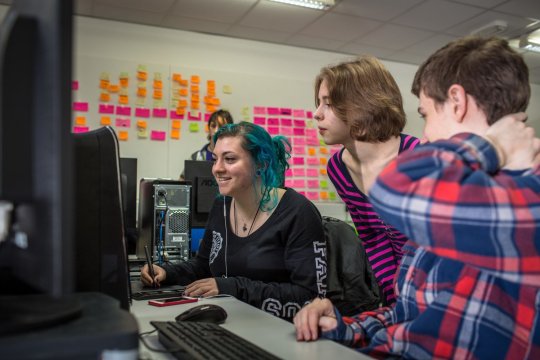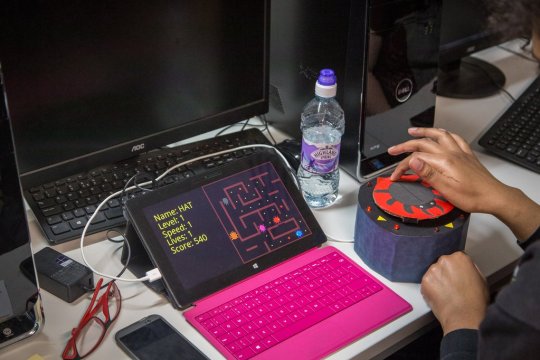In this series of articles we’ll be casting our gaze over some examples of practice currently being undertaken at Falmouth University. We work extensively with a variety of subjects and often find that the learning experiences are as diverse as those teaching on the courses.
This month we’re focusing on Computing for Games, a relatively new course located within the Games Academy. The course had its first intake this academic year and is the only Bachelor of Science degree to be offered at Falmouth University.

EdTech recently met with course leader Michael Scott to discuss some of the tools and initiatives used as part of taught delivery on the modules. Peer support was a common theme that arose during our discussion with students encouraged to make use of Slack throughout the course. Michael has set up sub channels for each module and student groups are invited to also set up their own channels that relate to project teams. Students are also encouraged to use Slack alongside delivered sessions to discuss topics covered in the lecture.
Michael also described the role of Slack in setting formative tasks to the students, “Active learning through engagement and reflection is very important, so I regularly set tasks where each student does some work and then posts their approach to tackling that particular task to Slack”, using this method they’re able to view each other’s work and create a dialogue around their own solution, while also reflecting on the responses of peers.
Michael put some of the success of peer communication down to small group size and it will be interesting to follow how this translates into larger cohorts as the course grows in size.
Another tool particularly prevalent across Computing for Games is Github, a powerful platform for developers that can be used to share projects and work collaboratively with code. Michael has found a way to utilise the ‘pull request’ functionality of this tool to provide formative feedback to his students, “When students create a pull request, I am able to post comments directly within their code, so I go through projects and write inline feedback within Github to provide instant feedback to the students on their works-in-progress”.

As with many of the subjects at Falmouth we tend to see many industry specific tools permeate into the courses, it’s not surprising that Computing for Games are incorporating specialised tools into taught delivery, especially as it prepares students for an industry where knowledge of their use is expected.
So what’s next for Computing for Games, Michael has expressed an interest in finding a solution for viewing live streaming of code for workshop demonstrations, “At the moment I project what I’m doing at the front of a session, but it would be good to provide a link to students so they can stream what is happening and follow on their own machines”, the ET team are now looking into potential live streaming options like codeshare.io that would facilitate the functionality Michael would like to see added to his seminars.
If you’re interested in implementing any technology into your teaching or would like further information on the tools discussed, please get in touch.